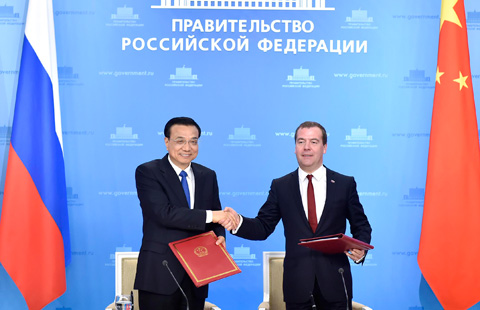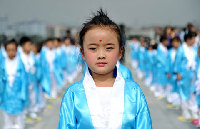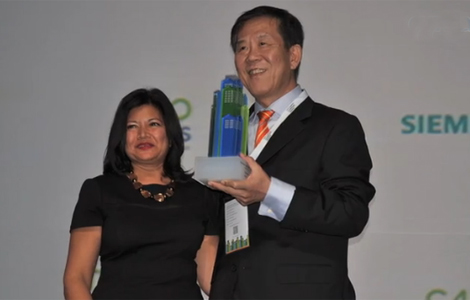The rebirth of Confucianism
Updated: 2014-10-14 10:00
By Wang Kaihao in Sishui county, Shandong(China Daily)
|
||||||||
"Villagers now show more concern about keeping the environment clean, thanks to the teachings of Confucius."
Six branches of the lecture series have been established across the township, covering its 60 villages. Confucian teachings were heavily criticized during the "cultural revolution" (1966-76). But recently, the country's top leaders have emphasized the importance of his teachings. In September, President Xi Jinping attended a ceremony in Beijing to celebrate Confucius' birthday.
"Many young and middle-aged people in the countryside go to the big cities to work, leaving their parents and children at home," says Qian Yuzhen, a retired teacher who delivers lectures on Confucianism.
"Our lectures even attract some Christian villagers. Though the beliefs are different, the emphasis on love, inner peace and courtesy is common. They find emotional resonance in the teachings."
Yan Binggang, deputy head of Advanced Institute for Confucian Studies at Shandong University, is behind the project to revive Confucianism in rural China. "The teachings must come out of the ivory tower to reach people in the countryside, who are often not educated," he says.
"Confucianism is always in Chinese people's blood, no matter how the social structures change. What we want to do is to awaken that essence hidden in everyone's heart."
Yan goes to the township twice a month to give lectures for free. His team, which is made up of about 10 people, includes college professors and school teachers. "We're starting everything from scratch. We cannot push too hard. We can only begin with those parts that are close to people's lives, like guiding them to be filial and caring. But our goal is far beyond that. We want a self-sufficient system after we leave."
Several other cities in Shandong have also adopted similar programs. The province's cultural department allocated 13 million yuan ($2.12 million) this year to support the teaching of Confucianism.
Yan says some South Korean scholars have shown interest in starting similar projects in their country.

 Premier Li arrives in Rome for official visit to Italy
Premier Li arrives in Rome for official visit to Italy
 Universal to open theme park in Beijing
Universal to open theme park in Beijing
 Child bride 'marries' 37-year-old
Child bride 'marries' 37-year-old
 New York celebrates 70th Annual Columbus Day
New York celebrates 70th Annual Columbus Day
 HK police vow minimum force to remove protest road barriers
HK police vow minimum force to remove protest road barriers
 China, Russia sign deals on energy, high-speed railways
China, Russia sign deals on energy, high-speed railways
 Future of US-China movies to be discussed
Future of US-China movies to be discussed
 Chinese art troupe displays power to overcome obstacles
Chinese art troupe displays power to overcome obstacles
Most Viewed
Editor's Picks

|

|

|

|

|

|
Today's Top News
Premier Li arrives in Rome for official visit to Italy
Chinese tourists rank US No 3 spot
Alibaba set to expand 'double 11'
Kim makes first public appearance in 40 days
HK police vow minimum force to remove protest road barriers
Ferguson protesters struggle to keep focus on slain teenager
Canadian Ebola vaccine begins human testing
Coal taxes could impact market
US Weekly

|

|









